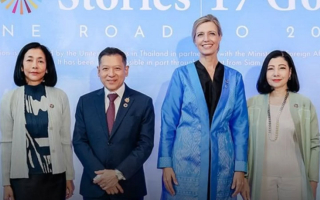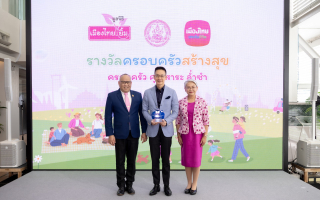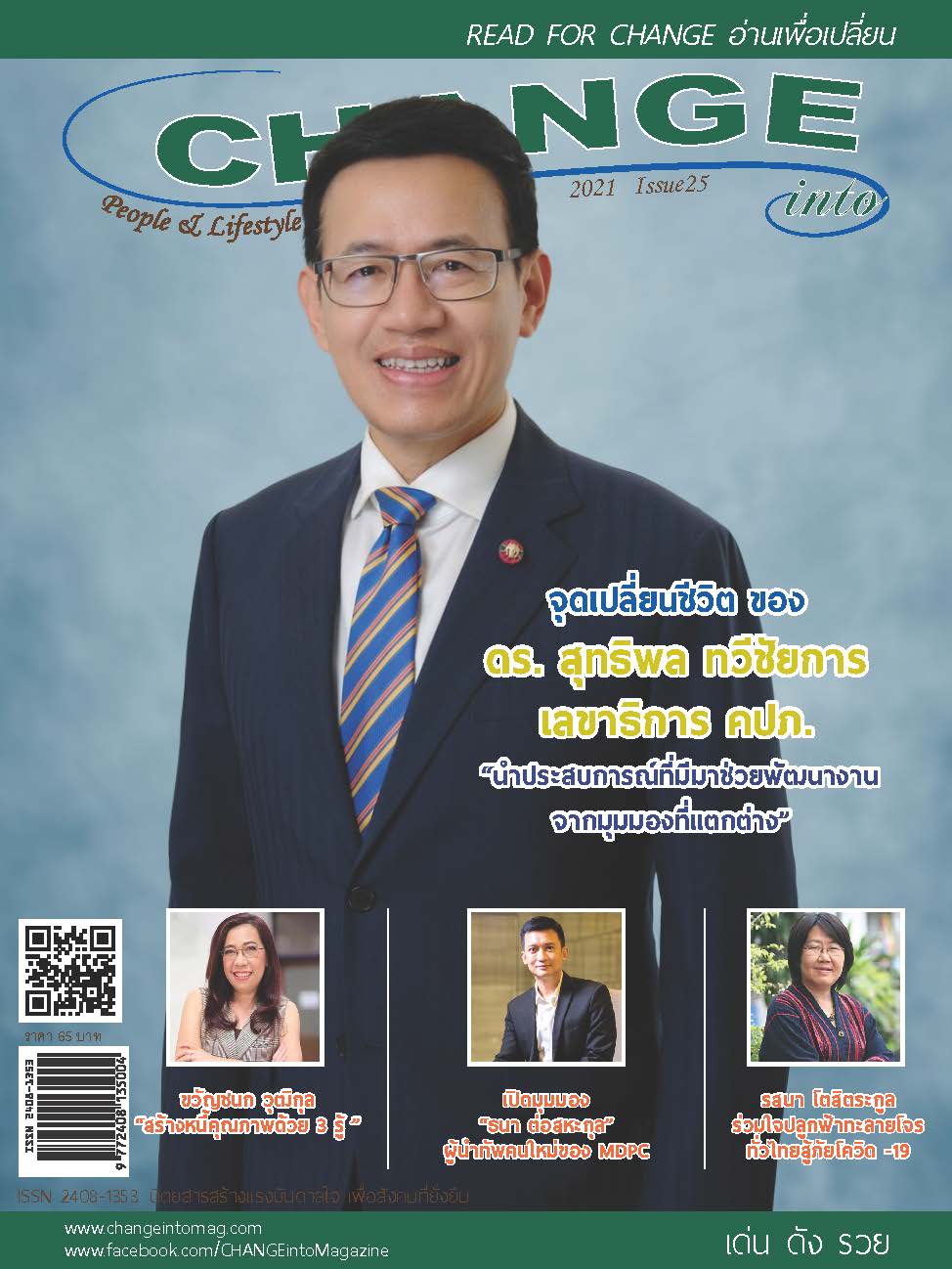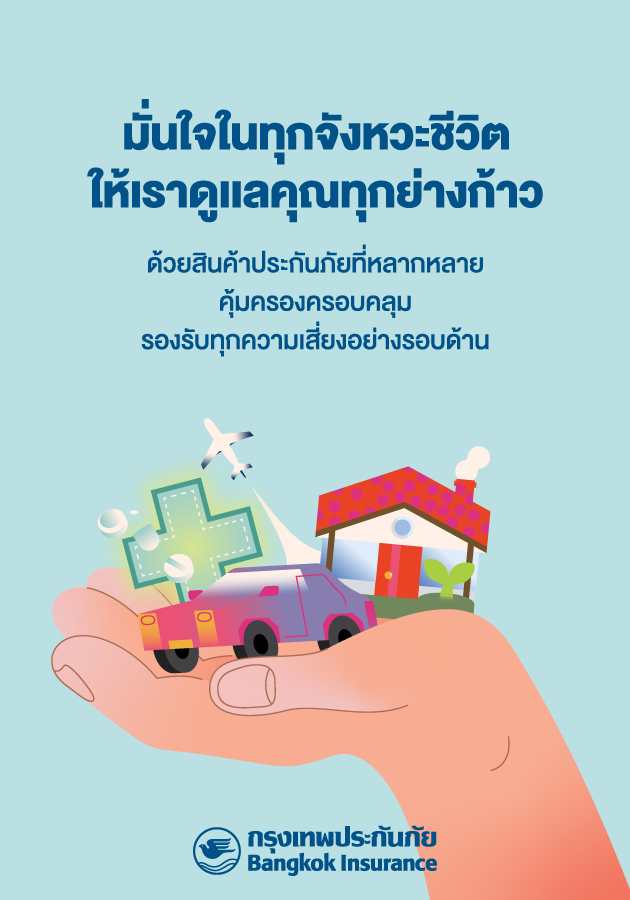ผลสำรวจที่น่าตกใจของเทเลนอร์พบว่า ผู้หญิงไทยส่วนใหญ่สนับสนุนอินเตอร์เน็ตสำหรับผู้หญิง หวังลดการคุกคามทางเพศและส่งเสริมเนื้อหาสำหรับผู้หญิง
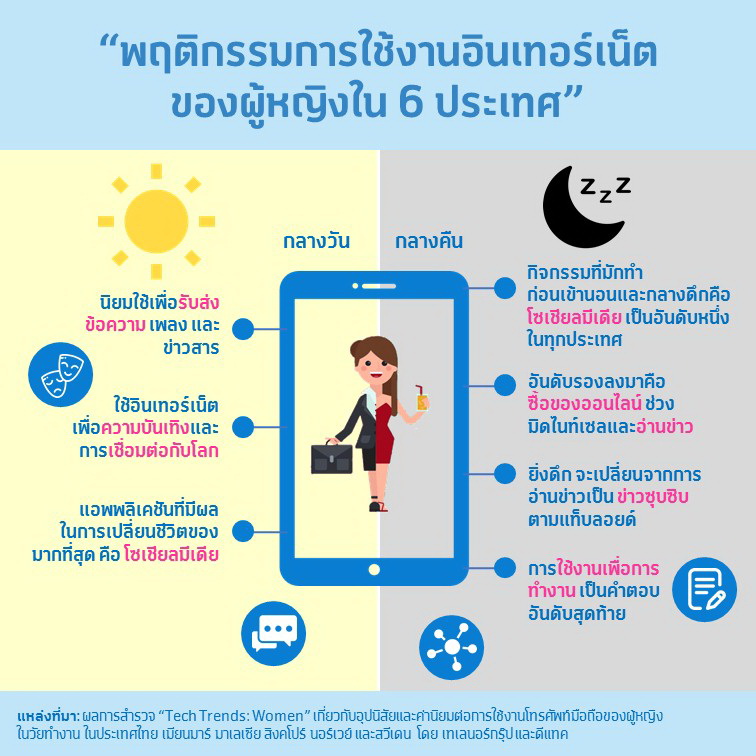
ผลสำรวจที่น่าตกใจของเทเลนอร์พบว่า ผู้หญิงไทยส่วนใหญ่สนับสนุนอินเตอร์เน็ตสำหรับผู้หญิง หวังลดการคุกคามทางเพศและส่งเสริมเนื้อหาสำหรับผู้หญิง
10 สิงหาคม 2561 – เทเลนอร์กรุ๊ปเผยผลสำรวจล่าสุด เป็นข้อมูลเชิงลึกที่น่าสนใจเกี่ยวกับอุปนิสัยและค่านิยมต่อการใช้งานโทรศัพท์มือถือของผู้หญิงในวัยทำงาน การสำรวจ “Tech Trends: Women” พบว่า ผู้หญิงใช้โทรศัพท์เพื่อความบันเทิงส่วนตัวเป็นหลัก ไม่ใช่ในการทำงาน
สรุปประเด็นหลัก:
· ผู้หญิงใช้โทรศัพท์มือถือในการรับส่งข้อความส่วนตัว เพื่อความบันเทิง และโซเชียลมีเดียมากกว่าใช้ในการทำงาน
· ผู้หญิงมองว่าการที่โทรศัพท์มือถือช่วยในการแลกเปลี่ยนข้อมูลและบริการทางการเงิน มีบทบาทสำคัญต่อการแก้ไขปัญหาสังคมและเศรษฐกิจในมุมกว้าง
· โทรศัพท์มือถือช่วยเสริมประสิทธิภาพในด้านชีวิตการทำงานของผู้หญิง โดยสร้างความยืดหยุ่น ความสมดุลระหว่างงานและชีวิตส่วนตัว
· ผู้หญิงในแต่ละประเทศมีความแตกต่างของความเหมาะสมในการงดใช้โทรศัพท์มือถือในสถานการณ์ที่แตกต่างกัน
· ผู้หญิงไทยส่วนใหญ่สนับสนุน “อินเทอร์เน็ตเฉพาะสำหรับผู้หญิง” แตกต่างจากผู้หญิงสิงคโปร์ สวีเดน และนอร์เวย์
ดร.เอริก้า กิ๊บสัน รองประธานฝ่ายการจัดการผลิตภัณฑ์และการค้นคว้าวิจัยด้านผู้ใช้งาน เทเลนอร์กรุ๊ป กล่าวว่า “โดยทั่วไปแล้ว ผู้หญิงกล่าวว่าโทรศัพท์มือถือเป็นหนี่งในเครื่องมือที่ช่วยพวกเธอออกแบบการใช้ชีวิตที่มีความสมดุลระหว่างการทำงานและการใช้ชีวิตส่วนตัว แต่เราพบว่าโทรศัพท์มือถือมีอิทธิพลต่อการทำงานของพวกเธอน้อยกว่าที่เราคาดไว้ เนื่องจากกลุ่มผู้หญิงวัยทำงานที่มีการศึกษาสูงมักใช้โทรศัพท์มือถือเพื่อความบันเทิง การติดต่อสื่อสารในชีวิตส่วนตัว เพื่อหยุดพักจากชีวิตการทำงานอันวุ่นวาย”
“จากการสำรวจครั้งนี้ เราได้ข้อมูลเชิงลึกที่ชัดเจนและมีประโยชน์อย่างมากเกี่ยวกับอุปนิสัยและความต้องการต่อบริการดิจิทัลของผู้ใช้งานหญิง ซึ่งเป็นสิ่งที่เราต้องการทำความเข้าใจ เนื่องจากเรารู้ดีว่าผู้หญิงเป็นผู้ใช้งานกลุ่มใหญ่ในบริการดิจิทัลและข้อมูลข่าวสาร” ดร.กิ๊บสัน กล่าว
การสำรวจครั้งนี้ถูกจัดขึ้นกับกลุ่มตัวอย่างที่เป็นผู้หญิงวัยทำงานที่มีอายุระหว่าง 25-40 ปี ในประเทศแถบสแกนดิเนเวียและเอเชีย (มาเลเซีย เมียนมาร์ นอร์เวย์ สิงคโปร์ สวีเดน และไทย) เพื่อความหลากหลายของระบบเศรษฐกิจ สังคมและการเมือง ระดับของการพัฒนาอุตสาหกรรม และอัตราการเข้าถึงโทรศัพท์มือถือ
การใช้งานหลักบนโทรศัพท์มือถือของผู้หญิง
โดยประมาณ 50-80% ของกลุ่มตัวอย่างหญิงทั้ง 6 ประเทศพบว่าพวกเธอใช้งานโซเชียลมีเดียมากที่สุด แอพพลิเคชันรับส่งข้อความตามมาเป็นอันดับสองในประเทศส่วนใหญ่ ยกเว้นในสิงคโปร์ ที่แอพพลิเคชันรับส่งข้อความถูกใช้มากที่สุดเป็นอันดับแรก การอ่านข่าวเป็นคำตอบอันดับต้น ๆ ในนอร์เวย์และเมียนมาร์ ส่วนการฟังเพลงถูกจัดเป็นอันดับสามในสวีเดนและสิงคโปร์ ส่วน WiFi Calling ที่เป็นที่นิยมในปัจจุบัน กลับถูกผู้หญิงชาวมาเลเซียและเมียนมาร์ละเลย เพราะพวกเธอยังคงนิยมการโทรแบบปกติ ซึ่งเป็นหนึ่งในสามอันดับแรกของการใช้งานหลักของพวกเธอ
เป็นที่น่าสนใจว่าอัตราการใช้งานโทรศัพท์มือถือสำหรับงานและชีวิตส่วนตัว แตกต่างกันระหว่างโลกตะวันตกและโลกตะวันออก ผู้หญิงชาวนอร์เวย์และสวีเดนระบุว่าการใช้โทรศัพท์มือถือในการทำงานเป็นกิจกรรมอันดับท้ายๆ และพวกเธอพยายามตัดขาดจากการทำงานในเวลากลางคืน ในขณะที่ผู้หญิงในประเทศอาเซียนส่วนมากยอมให้งานเข้ามาแย่งเวลาส่วนตัวของพวกเธอ ส่วนผู้หญิงชาวไทยและเมียนมาร์ยกให้แอพพลิเคชันรับส่งข้อความที่เกี่ยวข้องกับงานและการโทรเป็นการใช้งานที่สูงเป็นอันดับที่สี่และหกตามลำดับ
ความรู้สึกที่เกิดขึ้นบ่อยที่สุดขณะใช้งานโทรศัพท์มือถือ
ผู้หญิงในทั้ง 6 ประเทศให้ความเห็นตรงกันว่า “ความบันเทิง” และ “การเชื่อมต่อกับโลก” เป็นความรู้สึกอันดับแรกๆ ที่เกิดขึ้นระหว่างการใช้งานโทรศัพท์มือถือ และเป็นที่น่าสนใจว่า ผู้หญิงชาวสวีเดนระบุว่าพวกเขารู้สึก “เสพติด” ผู้หญิงเมียนมาร์รู้สึก “มองโลกในแง่ดี” ส่วนผู้หญิงมาเลเซีย นอร์เวย์ สิงคโปร์ และไทยต่างมีความรู้สึก “ผ่อนคลาย” ส่วนความรู้สึก “ซึมเศร้า” “เครียด” “ถูกถาโถม” และ “อ้างว้าง” ปรากฎเป็นคำตอบลำดับท้าย ๆ ของผู้หญิงในทุกประเทศ
กิจกรรมบนโทรศัพท์มือถือในเวลากลางคืน และเมื่อตื่นขึ้นมากลางดึก
“โซเชียลมีเดีย” เป็นคำตอบอันดับหนึ่งของผู้หญิงในทุกประเทศ ซึ่งคำตอบลำดับรองลงไปจะแตกต่างกันในแต่ละประเทศ
10% ของกลุ่มตัวอย่างจากสวีเดนระบุถึงการซื้อของออนไลน์ช่วงมิดไนท์เซล ผู้หญิงชาวนอร์เวย์และเมียนมาร์นิยมอ่านข่าวเป็นกิจกรรมหลักก่อนเข้านอน โดย 1 ใน 5 ของผู้หญิงชาวนอร์เวย์ยอมรับว่าเปลี่ยนจากการอ่าน “ข่าว” มาเป็น “ข่าวซุบซิบตามแท็บลอยด์” เมื่อเวลายิ่งดึก ส่วน “การใช้งานเพื่อการทำงาน” เป็นเป็นคำตอบอันดับสุดท้ายของผู้หญิงในทุกประเทศ
สถานการณ์ที่ผู้หญิงยอมรับหรือปฏิเสธที่จะไม่ใช้โทรศัพท์มือถือ
การใช้โทรศัพท์มือถือของผู้หญิงวัยทำงานถือเป็นเรื่องปกติในปัจจุบัน แต่ในบางสถานการณ์ที่พวกเธอก็จะหลีกเลี่ยงที่จะงดใช้โทรศัพท์มือถือ ไม่ว่าจะด้วยมารยาท หรือความจำเป็น โดยผู้หญิงใน 6 ประเทศต่างกล่าวว่าพวกเธอจะปิดโทรศัพท์ระหว่างการสัมภาษณ์งาน และ 90% ของผู้หญิงในสแกนดิเนเวียเห็นว่าการใช้โทรศัพท์ในงานศพเป็นสิ่งที่ไม่เหมาะสม แตกต่างจากผู้หญิงเอเชียที่มีเพียงแค่ 25% เห็นว่าไม่เหมาะสม
และสิ่งน่าสนใจกว่านั้นคือ ระดับความดังของเสียงโทรศัพท์ที่ผู้หญิงเปิดต่างกันในแต่ละสถานการณ์ เนื่องจากในอดีตการสนทนาโทรศัพท์มือถือถูกมองว่าเป็นเรื่องส่วนตัว ผู้หญิงในทุกประเทศกล้าที่จะใช้โทรศัพท์ในเวลาโรแมนติกมากกว่าในระหว่างการสัมภาษณ์งานหรืออยู่บนเครื่องบิน ผู้หญิงไทยและเมียนมาร์เป็นกลุ่มที่มีความกล้าในการใช้โทรศัพท์ในช่วงเวลาโรแมนติกมากที่สุด (มีเพียง 13% และ 3% ที่ “ปิดเครื่อง”) ในขณะที่ผู้หญิงสวีเดน 39% ไม่เห็นด้วยกับการใช้โทรศัพท์ในเวลาโรแมนติก สิ่งที่น่าสนใจอีกอย่างหนึ่งคือขณะใช้ห้องสุขา ผู้หญิงสแกนดิเนเวียไม่มีปัญหาที่จะใช้โทรศัพท์ แต่ผู้หญิงเอเชียเลือกที่จะปิดมัน
โทรศัพท์มือถือช่วยเสริมสร้างพัฒนาสังคมได้อย่างไร
เนื่องจากเทเลนอร์กรุ๊ปมุ่งมั่นที่จะสนับสนุนเป้าหมายการพัฒนาที่ยั่งยืนของสหประชาชาติ เป้าหมายที่ 10 การลดความเหลื่อมล้ำ จึงสำรวจความคิดเห็นของผู้หญิงเกี่ยวกับบทบาทของโทรศัพท์มือถือในการช่วยแก้ปัญหาสังคมและเศรษฐกิจ ซึ่งกว่า 60% ของกลุ่มตัวอย่างในนอร์เวย์ มาเลเซีย สิงคโปร์ สวีเดนและไทย และ 80% ในเมียนมาร์ ระบุว่า “การแชร์ข้อมูลข่าวสาร” ก่อให้เกิดประโยชน์สูงที่สุด นอกจากนี้ 7 ใน 10 ของผู้หญิงสวีเดน 6 ใน 10 ของผู้หญิงนอร์เวย์ และประมาณครึ่งหนึ่งของผู้หญิงไทย สิงคโปร์และมาเลเซีย ระบุว่าแอพพลิเคชันอินเทอร์เน็ตแบงก์กิ้งเป็นเทคโนโลยีมือถือที่จะเข้ามาช่วยแก้ปัญหาสังคมได้
“เราพบคำตอบที่น่าสนใจและแตกต่างกันออกไป” ดร.กิ๊บสันกล่าว “1 ใน 4 ของผู้หญิงไทยและสวีเดนระบุว่า ‘ความเหงา’ เป็นสิ่งที่โทรศัพท์มือถือช่วยบรรเทาได้ ในขณะที่ผู้หญิงสิงคโปร์ ซึ่งเป็นประเทศที่เป็นที่มีชื่อเสียงในเรื่องความปลอดภัย กล่าวว่าโทรศัพท์มือถือมีส่วนช่วยในเรื่องความปลอดภัยส่วนบุคคล”
ผู้หญิงต้องการ “อินเทอร์เน็ตเฉพาะสำหรับผู้หญิง” หรือไม่?
หนึ่งในคำถามที่ก่อให้เกิดการแสดงความคิดเห็นที่น่าสนใจอย่างมากก็คือ “คุณสนับสนุนให้มีอินเทอร์เน็ตเฉพาะสำหรับผู้หญิงหรือไม่?” กว่า 65% ของผู้หญิงไทยสนับสนุนให้มีอินเทอร์เน็ตเฉพาะสำหรับผู้หญิง เนื่องจากพวกเธอเชื่อว่ามันจะช่วยลดการล่วงละเมิดและส่งเสริมให้เกิดเนื้อหาเกี่ยวกับผู้หญิงมากขึ้น ในทางตรงกันข้าม ผู้หญิงชาวสิงคโปร์และสแกนดิเนเวียส่วนใหญ่ไม่เห็นด้วยกับแนวความคิดนี้ โดยมีผู้หญิงเพียง 17% ในสิงคโปร์ 10% ในสวีเดน และ 3% ในนอร์เวย์ที่สนับสนุนอินเทอร์เน็ตเฉพาะสำหรับผู้หญิง โดยพวกเธอกล่าวว่า อินเทอร์เน็ตเฉพาะสำหรับผู้หญิงเป็นการเลือกปฏิบัติและไม่น่าจะช่วยแก้ปัญหาด้านความปลอดภัยและการล่วงละเมิดได้ ส่วนผู้ที่สนับสนุนความคิดนี้ให้เหตุผลว่าอินเทอร์เน็ตเฉพาะผู้หญิงน่าจะมีความปลอดภัยสำหรับเด็กมากกว่า
“ถึงแม้ ‘อินเทอร์เน็ตเฉพาะสำหรับผู้หญิง’ จะยังเป็นเพียงแนวความคิด แต่เราคิดว่าคำตอบที่หลากหลายเหล่านี้จะช่วยจุดประเด็นให้เกิดการแก้ปัญหาการคุกคามทางเพศที่ผู้หญิงไทย เมียนมาร์และมาเลเซียกำลังเผชิญอยู่บนโลกออกไลน์” ดร.กิ๊บสันกล่าว
บริการโทรศัพท์มือถือเปลี่ยนชีวิตของผู้หญิง
ผู้หญิงทั้ง 6 ประเทศต่างบอกตรงกันว่า แอพพลิเคชันที่มีผลในการเปลี่ยนชีวิตของพวกเธอมากที่สุด คือแอพพลิเคชันโซเชียลมีเดีย ซึ่งรวมถึง แอพพลิเคชันรับส่งข้อมูล และอินเทอร์เน็ตแบงก์กิ้งตามมาเป็นอันดับที่สองในสำหรับผู้หญิงในแถบสแกนดิเนเวีย ผู้หญิงสิงคโปร์ให้ความเห็นว่าแอพพลิเคชันรับส่งข้อมูลเป็นนวัตกรรมเปลี่ยนอนาคต ส่วนผู้หญิงมาเลเซียมองว่าแอพโซเชียลมีเดีย แอพรับส่งข้อมูล แอพเพื่อความบันเทิง และเครื่องมือค้นหา ต่างมีความสำคัญใกล้เคียงกัน
ผลกระทบของโทรศัพท์มือถือต่อความสมดุลระหว่างงานและชีวิตส่วนตัว
ผู้หญิงสวีเดนและนอร์เวย์ส่วนใหญ่เห็นว่าโทรศัพท์มือถือ “ไม่มีผล” ต่อความสมดุลระหว่างงานและชีวิตส่วนตัว แตกต่างจากผู้หญิงไทย สิงคโปร์และมาเลเซียที่เห็นตรงกันว่าโทรศัพท์มือถือช่วยเพิ่มความยืดหยุ่นในการทำงานได้ โดยผู้หญิงสิงคโปร์และมาเลเซียยังคงมีความเห็นว่าโทรศัพท์มือถือช่วยเพิ่มประสิทธิภาพและความสมดุลระหว่างงานและชีวิตส่วนตัว
“แม้ผู้หญิงส่วนใหญ่จะมีความรู้สึกว่าโทรศัพท์มือถือช่วยให้พวกเธอสามารถจัดการความสมดุลระหว่างการทำงานและชีวิตส่วนตัวได้ดีขึ้น แต่ท้ายที่สุดแล้ว ความสมดุลและบทบาทของโทรศัพท์มือถือขึ้นอยู่กับการตัดสินใจของพวกเธอเอง ซึ่งโดยพื้นฐานแล้ว ผลสำรวจแสดงให้เราเห็นว่าโทรศัพท์มือถือเป็นสิ่งอำนวยความสะดวกที่สำคัญและจะยังคงความสำคัญต่อไป ทั้งในด้านการทำงานและการใช้ชีวิตส่วนตัว” ดร.กิ๊บสันกล่าว
สำหรับรายงานผลการสำรวจฉบับเต็มและรูปภาพประกอบ โปรดเข้าไปที่ www.telenor.com
New Telenor survey finds that professional women use mobiles to balance work & life – but mostly just life
August 10, 2018 - A new Telenor Group survey published today has uncovered interesting insights into professional women’s habits and values with regards to mobile connectivity. The “Tech Trends: Women” survey discovers that women use mobile phones primarily for personal enjoyment and not for business. And despite much talk of digital detoxing, social media is as popular as ever.
Top findings:
· Women use their mobiles significantly more for personal messaging, entertainment and social media than they do for work; professional tasks are chosen least among mobile activities – with some exceptions in Southeast Asia.
· Women view mobile’s role in the exchange of information and financial services as most valuable for solving larger societal and economic problems.
· Flexibility, work-life balance and efficiency among most cited mobile value-adds to women’s professional lives.
· Despite much talk of social media fatigue, it was found to rule mobile habits around the clock.
· Wildly varied national opinions on a hypothetical “women-only Internet” and in which situations mobile phones should be off limits.
“By and large, the women we talked to say that the mobile phone is one of the tools that helps them shape how they balance their personal lives with their professional lives. The mobile phone seems to be less of a leash to the office than we expected. We are seeing well-educated, professional women turn to mobile devices for entertainment, maintaining personal connections, and providing a break from the rigours of their busy lives,” said Dr. Erica Gibson, VP of Product Management and User Research, Telenor Group.
“The survey has given us more crystallised and very useful insights into female digital habits and user needs. We wanted to talk to women about this because we know that they hold large stakes in connectivity and access to information and services, which they make clear in this survey,” said Gibson.
The survey was conducted on a sample of 1300 professional women aged 25-40 in Scandinavia and Asia (Malaysia, Myanmar, Norway, Singapore, Sweden and Thailand). This was supplemented by in-depth interviews with women in Norway, Singapore and Thailand. The markets surveyed represent a range of economies, socio-political systems, stages of industrial development and mobile penetration.
Women’s top mobile activities
All six markets share the use of social media, personal messenger apps, music and news as respondents’ most frequent mobile activities. Between 50-80% of women in all markets say they use social media apps most out of any other mobile features, despite much talk of social media fatigue. Messaging apps is a close second in most markets, but stands out as the top choice in Singapore. Reading news is highly ranked in Norway and Myanmar, and listening to music is Sweden and Singapore’s third highest activity. Despite the popularity of wifi-calling, women in Malaysia and Myanmar highlight personal phone calls in their three most frequent mobile activities.
Interestingly, when looking at top mobile activities, the survey found that the degrees to which the personal supersedes the professional on mobile phones shifts as you head from West to East. In Norway and Sweden, women list work among their least frequent mobile uses, and try to completely shut out the office in the evening. Women in Southeast Asia allow work to percolate through more of their personal time. Women in Thailand and Myanmar, however, both list work-related messaging and phone calls as fourth and sixth most frequent activities.
Most common emotions when using the mobile
When it comes to feelings associated with mobile usage, women in all six markets were aligned in feeling “entertained” and “connected to the world” when using their mobiles. Interestingly for the third choice, Swedish women say they felt “addicted” while Myanmar women report being “optimistic”. Malaysia, Norway, Singapore and Thailand all share feeling “relaxed” while on their mobile. Feelings such as “depressed”, “stressed”, “overwhelmed”, and “exposed” were least frequently identified across the board.
Mobile activities in the evening - and if waking up at night
To shed light on what happens after office hours, respondents were also asked about their last three mobile activities before bedtime and in the middle of the night. Social media came in first across the board, but subsequent options vary greatly.
Ten percent of Swedes cite a midnight online shopping habit. Women in Norway and Myanmar read news as a primary before-bed activity, though in Norway, 1 in 5 admits that “news” shifts to “reading gossip and tabloids” as the night wears on. Not allowed before bed or in the middle of the night are work activities – the least frequent undertakings mentioned by women in all markets.
Where women say no to mobiles – and where they don’t…
Professional women use their mobile a lot – but there are situations in which they will disconnect. Women in all six markets say job interviews are among their top “phone off” locations. More than 90% of Scandinavian women say funerals are inappropriate for mobiles, compared to a quarter of Asian women.
Interestingly, the situations where women keep their mobiles on speak volumes, as the mobile permeates previously “sacred” social and private settings. Women in all markets are more accepting of phones in “romantic situations” than they are of phones on during job interviews or on airplanes. Thai and Myanmar women are the most unopposed to phones in intimate settings (only 13% and 3% say “turn them off”) while 39% of Swedes are against mixing phones and romance. Scandinavians are unopposed to mobiles in the loo, while Asians turn them off.
How can the mobile help empower societies
As Telenor Group has committed to supporting the UN Sustainable Development Goal #10 – Reduced Inequalities, the survey also asked women for their thoughts on how mobile connectivity could address societal or economic issues. “Information and knowledge sharing” is cited as the most important way mobiles can do this, according to about sixty percent of women in Norway, Malaysia, Singapore, Sweden and Thailand – and 80 percent of women in Myanmar. Mobile banking is identified by women in all markets as avenues through which mobile technology can solve societal challenges – cited by 7 in 10 Swedes, 6 in 10 Norwegians, and about half of Thais, Singaporeans and Malaysians.
“We found some interesting, anomalous answers from individual markets as well,” said Gibson, “A quarter of Thai and Swedish women singled out ‘loneliness’ as something mobiles can mitigate, and Singaporean women, in a country known for safety, reported that mobiles can help with personal safety.”
Do women want a “female-only Internet”?
One of the more provocative questions posed in the survey, “To which degree would you support a women-only Internet?” generated an interesting response. Most eyebrow-raising: 65% of Thai women support having an Internet which is accessible only to women, because they say it would lead to less harassment and more relevant content. Singaporean women align with Scandinavian women in rejecting the concept (83% in Singapore, 90% in Sweden and 97%in Norway), saying an all-women Internet would be discriminatory and would not address safety or harassment issues. The few that were in favour, stated that a female-only Internet amongst others would be safer for kids.
“Although the notion of a ‘women-only Internet’ is a hypothetical one, we think that these wildly varied answers warrant further conversations about what women are dealing with online in Thailand, Myanmar and Malaysia in order to support an idea such as this,” said Gibson.
Mobile services that have changed women’s lives
Across the board, women in all six markets say that the most personally life-changing apps are social media, including messaging apps. Mobile banking is a close second in Scandinavia. In Asia, Singaporeans point to messaging apps as personal game-changers while Malaysian women appreciate various services in equal measure – social media, messaging, entertainment and search engines.
Impact of mobile on work-life balance
As for how mobile technology has impacted their working lives, the most common answers in Sweden and Norway are “not changed” or that mobiles allow them “flexibility to work anywhere”. Thai, Myanmar, Singaporean and Malaysian women agree that mobiles allow for more work flexibility. Singaporean and Malaysian women add that they think mobiles help with efficiency and work-life balance.
“Women feel empowered by the mobile to balance work and life. How the balance is struck and the role the mobile should play is ultimately a choice for professional women in Scandinavia and Asia to make themselves. Fundamentally though, we see from the survey that the mobile phone is a huge enabler and will continue to be, both professionally and privately,” said Gibson.
For a full survey report and to download illustrations, visit Telenor.com.



